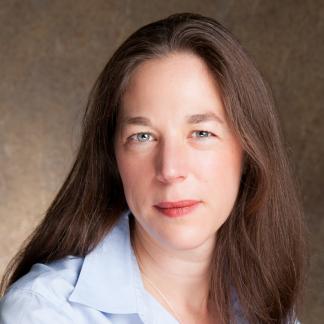Sara Jaffee
NBS, Room 464
425 S. University Ave.

Specific Research Areas
Development of antisocial behavior; gene-environment interplay
Research Synopsis
I am a developmental psychopathologist who conducts research on at-risk families and children. I am interested in how stressful environments exacerbate biobehavioral vulnerabilities to affect children’s development, with a special interest in children’s antisocial behavior. I also study whether policies that target structural determinants of health promote positive outcomes for children and families. My work combines longitudinal, epidemiological methods with experimental and quasi-experimental designs to better understand how risk and protective factors operate in children’s development.
Professor Sara Jaffee will not be considering new graduate students for admission for Fall 2026.
Advisees
George Lin [Psychology Graduate Student]
Saul Urbina-Johanson [Psychology Graduate Student]
Islam, S., & Jaffee, S. R. (in press). Social mobility and mental health: A systematic review and meta-analysis. Social Science and Medicine.
Jaffee, S. R., Hasford, S., & Fein, J. A. (2023). Differential exposure to gun or knife violence over two decades is associated with sibling differences in depression. Development and Psychopathology, 35, 2096-2102.
Jaffee, S. R., Sligo, J. L., McAnally, H. M., Bolton, A. E., Baxter, J. M., Hancox, R. J. (2021). Early onset and recurrent depression in parents increases risk of intergenerational transmission to adolescent offspring. Journal of Child Psychology and Psychiatry, 62, 979-988.
Brumley, L. D., Russell, M. A., & Jaffee, S. R. (2019). Optimistic college expectations promote educational attainment: Evidence from a quasi-experimental sibling study. Psychological Science, 30, 1186-1194.
Milaniak, I., & Jaffee, S. R. (2019). Childhood socioeconomic status and inflammation: A systematic review and meta-analysis. Brain, Behavior, and Immunity, 78, 161-176.
Jaffee, S. R., Ambler, A., Merrick, M., Goldman-Mellor, S., Odgers, C., Fisher, H., Danese, A., & Arseneault, L. (2018). Childhood maltreatment predicts poor economic and educational outcomes in the transition to adulthood. American Journal of Public Health, 108(9), 1142–1147.
Jaffee, S. R. (2017). Child maltreatment and risk for psychopathology in childhood and adulthood. Annual Review of Clinical Psychology, 13, 525-551.